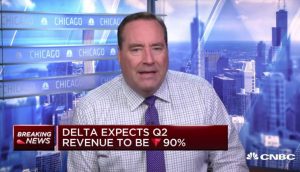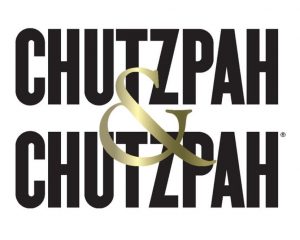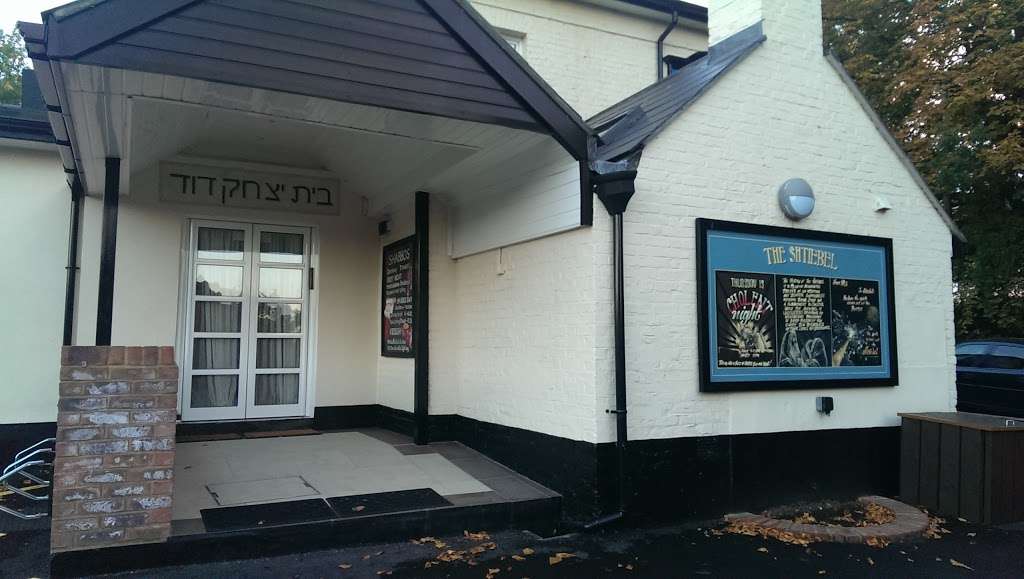Stimulus: Deserving and Not!
In this abbreviated –by Oisvorfer standards- Erev Pesach posting, once again, in lieu of a parsha review, you will instead be treated to another rant. Who’s the target this week? You will find out in the paragraphs to follow. So happens that Parshas Shmini is being usurped by preselected Pesach readings.
This week we will take a look at one of the President’s stimulus packages. And while stimulus is typically good, if you chap, and at times, critical to performance, also if you chap, one particular beneficiary of the packages the good President has signed into law, has me hot under collar. We shall cover that below. As well we shall explore a few who might have been left out.
The fallout from the corona virus is shreklich beyond words. We needn’t discuss the obvious: the loss of life, the inability to attend funerals of family members and close friends, and the list goes on. Our sages certainly did not envision shiva visits by text and zoom; the world is unrecognizable. Life as we knew it a few short weeks ago is no longer, at least for a shtikel while longer. Even those who remain unaffected by the corona physically are nonetheless suffering. Many are fearful. The elderly at home, sometimes together, ober in many cases alone with their thoughts are suffering emotionally. Grandparents are facing Pesach alone for the first time in decades, a thought unthinkable just last month. Oy vey! Who has answers? What does the RBSO want? Ver veyst?
And while the President and his people are mamish working hard to make sure the stimulus packages cover as many large and small businesses as possible, we ask azoy: should shtibels typically –but not always- owned and managed by independent operators, qualify for stimulus monies the President has signed into law? Shoin for those who don’t know what a shtiebl is, let’s try this. A Shtiebel is the Yiddish diminutive form for shtub, which means house. It commonly refers to a small, informal house of prayer. While a shul refers to a larger, more organized synagogue, the shtiebel is a heimish (homey) affair, where tables and chairs are preferred over pews. And while the shiebel does –at times- have a president, control –full and sole- remains with its owner operator, the rebbe. Finally, a shtiebel often starts as a converted house (or a storefront), hence its name shtibel, that has not been entirely renovated. With success, sthiebels do morph into larger shuls but still remain under the control of its rebbe/owner. Azoy iz iz (that’s how it is).
How does the rebbe make a living? Shtibel members typically pay the shul for the “mi shebayrach” the gabbis will chant following each and every aliya. And while there is no set price, the shvittzers pay more. Of course, shtibels will also collect monies through various appeals, room rental fees, and other creative campaigns. Do the rebbe/owners depend on these fees to make a living? Absolutely they do. As well they depend on monies given when members come by to sell chomatze before Pesach, on Purim, and or, even if the rebbe attends a simcha you want him at. The bottom line: the shtibel is a small business for most rebbes, bigger of course for certain more successful shuls. Another bottom line: as a result of corona, they are all out of business, Fartig! Their business model has left them exposed to corona, oy vey. Is that why one daring michutzif of a rebbe elected to keep his shtibel open–even this week- drawing the wrath -well deserved- from Rabbi Billet and mistama others to follow? Was he being driven by his fear of the RBSO or by his fear of losing a few dollars during the crisis?
Rebbe from Yitz Grossman on Vimeo.
Rabbi Billet from Yitz Grossman on Vimeo.
Another group suffering financially during these corona times are the mikubolim (prognosticators). Do they not depend on people visiting them in person and then shtupping them handsomely hoping that the more they give, the better the chance of the mikubil successfully intervening to mystically and magically solve their issues? In the end, it’s the consumer being shtupped. They do. How taka are these people who depend on human contact, on people gathering to visit with them, to make a living during corona? Yikes! The bottom line: large and smaller shtibels remain closed and rebbes are taka out of business. As to the mikubolim, any day now these very crafty individuals will be hosting their constituents via zoom; have your credit card or wire information handy. Disclaimer: there are of course very righteous mikubolim who are not money driven; sadly, they remain outnumbered –greatly- by the charlatans.
Ober, are they –until they get going with tele-advice- entitled to participate in the President’s stimulus? Are they not small businesses? Says the Ois azoy: certain shtibels may taka argue for relief ober most mikubolim exceed the revenue thresholds and will have to wait for better days when travel is permitted. Shoin, I feel better but not quite good; let’s go veyter.
As you well know, the President did not sign up for this and is working like a ferd (horse) trying everything in the playbook, along with new tricks being unveiled for the first time. He is working valiantly trying to balance the saving of lives and the saving of the economy. Already introduced and signed into law are three different stimuli packages, each worth trillions. The bottom line of them all: to save industries deemed vital, to help smaller business owners remain solvent, and in general to throw money –lots of it-at the problem in the hope that the old adage “money isn’t everything: it’s the only thing” is in fact emes. His chances are decent.
Ober today the Oisvorfer is not happy. Why not? Because for days prior to the introduction of the first stimulus package, the good President kept talking about the airlines. How the airlines need to be saved, how this was not their fault, how he intended to help them and how they were all reporting record revenues and profits just before the virus. Help them he taka did and the papers report azoy: “U.S. passenger airlines will have access to roughly $50 billion, half in grants, and half in loans!” Did you read that raboyseyee? That’s 50 Billion with a big B. Let’s also read this: “U.S.airlines JetBlue, American, United and Delta on Friday submitted applications to the Treasury Department for government grants to not furlough employees through Sept. 30 despite an unprecedented decline in air travel demand. Now they have to negotiate the details.
 Carriers had until 5 p.m. ET Friday to apply for $25 billion in grants in exchange for not furloughing workers or cutting their pay rates through Sept. 30, aid that airlines and labor unions lobbied for and Congress approved in a $2 trillion coronavirus relief package last week. The aid also allows for $29 billion in loans for passenger and cargo airlines. Airlines are the big winners. They were given $50 billion, according to an analysis by the Associated Press.
Carriers had until 5 p.m. ET Friday to apply for $25 billion in grants in exchange for not furloughing workers or cutting their pay rates through Sept. 30, aid that airlines and labor unions lobbied for and Congress approved in a $2 trillion coronavirus relief package last week. The aid also allows for $29 billion in loans for passenger and cargo airlines. Airlines are the big winners. They were given $50 billion, according to an analysis by the Associated Press.
Ober is $50B enough? “But those funds alone are not nearly enough,” Delta CEO Ed Bastian told employees in a note. “We are expecting our revenue in the second quarter to be down 90%. Without the self-help actions we are taking to save costs and raise new financing, that money would be gone by June.”
In other words: they aren’t happy. First, they want more, and secondly, they are balking at having to maybe offer warrants and or equity in return for government loans being offered? You hear this? Here they are desperate for survival and yet reluctant to offer equity in return for a bailout? Is this not the height of chutzpah?
Ober asks the Ois azoy: were and are these airlines deserving of a bailout? These very airlines and others have been ripping us off with extra fees they invented over the past few years. In fact, just weeks ago, these airline CEO’s were sitting back and trying to figure out yet more ways to hurt us –their customers. There was a time, not too long ago, when the purchase of a ticket included a seat and at least one piece of luggage. Avada those flying first class always and still do enjoy a second piece. Ober the “hamoin am” (the masses), the rest of us have been forced to suck it up and by paying for luggage. Are they deserving of stimulus? Not! Monies going to airlines should include clauses which call for free luggage for the next ten years. Alternatively, we the people who have been flying and filling their seats should be getting warrants and equity in these companies. It is after all tax money we pay that is going to bail them out.
 A May 16, 2019 report said azoy: The U.S. Department of Transportation’s annual airline baggage fee report found that domestic carriers collected nearly $5 billion in baggage fees last year, up from $4.5 billion in 2017 and $1.1 billion a decade ago. American Airlines brought in the most money from baggage fees in 2018, collecting $1.2 billion. It was followed by United, which collected $889 million. Notably, Alaska Airlines increased its baggage revenue by 40%. Sun Country Airlines also saw a massive increase of over 91%. The other carrier with higher-than-average growth was Spirit Airlines.
A May 16, 2019 report said azoy: The U.S. Department of Transportation’s annual airline baggage fee report found that domestic carriers collected nearly $5 billion in baggage fees last year, up from $4.5 billion in 2017 and $1.1 billion a decade ago. American Airlines brought in the most money from baggage fees in 2018, collecting $1.2 billion. It was followed by United, which collected $889 million. Notably, Alaska Airlines increased its baggage revenue by 40%. Sun Country Airlines also saw a massive increase of over 91%. The other carrier with higher-than-average growth was Spirit Airlines.
Their chutzpah knows no bounds, ober listen to this. If the baggage fee rip-off weren’t enough and avada it should be, in the last few years, the airlines came up with a new scheme: now when you buy an economy fare seat, you don’t get a seat. What you’re buying is the right to pay them additional fees if you want a reserved seat. What? You want a seat? You would like to sit near your family member? You’re traveling with your children and want to sit near them? And you want to reserve them without paying?! What nerve you have! Up until a few weeks ago, if you wanted an assigned seat, you needed to pay for it. In fact, as of today, this policy is still in place. So happens that just a few weeks ago, the Ois found himself flying back from Chicago on a half empty flight. Believe it or not, the flight attendants did not allow passengers to move into certain economy seats as they were premium and required a purchase. Let’s not forget that just a few years back, we were also paying fuel surcharges. “This is just another example of the U.S. airline industry’s strategy to increase its already record profits by confusing, deceiving and exhausting consumers into paying more,” says Kurt Ebenhoch, executive director of the Air Travel Fairness Coalition, an industry group. Airline seat reservation fees are enormously lucrative. It’s difficult to say how much money the airline industry is making from them. Airlines aren’t required to report that information. About 20 percent of all ancillary revenue comes from onboard services. U.S. airlines made $24.6 billion in ancillary revenue in 2017, according to a report by IdeaWorks, a research group. That means airlines are collecting close to $5 billion a year in that category.
The bottom line: the airlines have been killing us, their customers with additional fees. They have been reporting record profits as the President has said over and again. Their hands have been in our pockets and now they want a bail-out? And they have the chutzpah to argue they should not be forced to give up equity in the form of stock and or warrants for the helping hand the good President has extended?! What’s pshat? Consumers should be assured that going forward and for the next 10 years, assigned seats and luggage are included in every fare. Until then the Oisvorfer is pissed off and mad as hell!
The final bottom line: let’s all find ways –as best we can- to enjoy the coming Pesach and may the RBSO who can avada make this virus disappear, be so inclined. Omen!
A gittin Yom tov!
The Heylige Oisvorfer Ruv
Yitz Grossman

